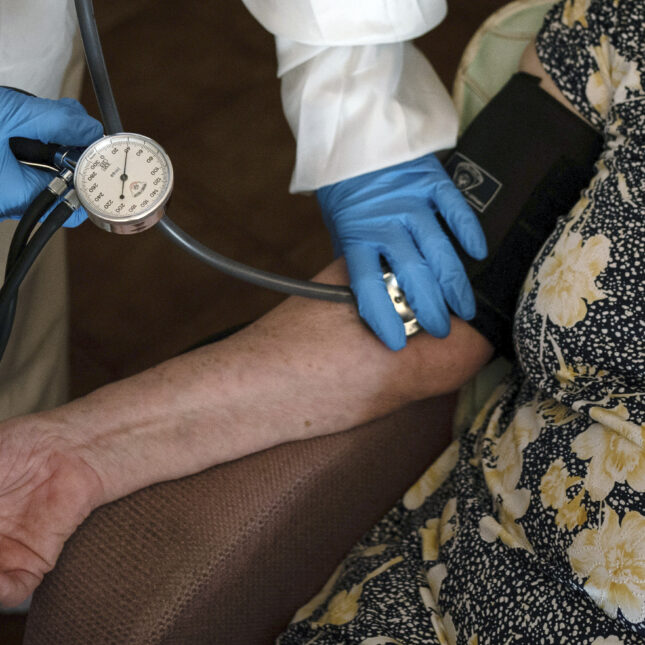Robert F. Kennedy Jr., serving as the 26th Secretary of the U.S. Department of Health and Human Services, has an ambitious goal. He envisions every American sporting a health-tracking wearable in the next four years, a statement he made during a recent House Subcommittee on Health hearing. Congressman Troy Balderson sought clarification regarding the accessibility of these devices to the public, raising concerns around the 21st Century Cures Act, privacy implications, and potential health advantages. Kennedy firmly maintained that access to wearable technology is indeed essential.
The head of the national Health and Human Services announced large-scale plans intending to educate the American populace about the efficacy of wearable health devices. A potential aspect of this strategy might include the government funding these tools. The department has started planning the steps needed to engage contractors and kickstart this initiative, aiming to make Using wearables a central part of their Making America Healthy Again agenda.
The project is undoubtedly ambitious and has not failed to raise valid concerns among experts and the public alike. After talking to several health specialists and considering the latest research in wearable technology, it seems that this initiative could be a positive step forward. However, a successful rollout requires careful planning and execution to safeguard against any unforeseen issues.
The Department of Health and Human Services aims to portray wearable tech as chic, innovative devices that allow users to monitor dietary impacts and take charge of their well-being, as outlined in their contract and solicitation form. RFK Jr. believes this campaign, which is set to be the agency’s most significant effort, will empower Americans to lead healthier lives. ‘This initiative can help people make more informed decisions about fitness, dietary habits, and their overall lifestyle,’ Kennedy explained.
The breadth of wearable technology is vast, extending from sleep and heart rate monitors to step counters and workout trackers. The end goal isn’t simply to attach a sensor-laden device to the human body; it’s intended to inspire and sustain healthier lifestyle choices that bring long-lasting benefits. ‘People will be able to monitor various health indicators such as glucose levels and heart rates in real-time, guiding their eating habits and lifestyle adjustments,’ claimed RFK Jr.
The exact type of wearable devices that the government intends to promote isn’t explicitly divulged or the form they will take. Instead, the focus seems to be on spreading awareness and proactive prevention rather than curing diseases. Kennedy cited an example of a costly weight-loss medicine, Ozempic, and suggested an $80 wearable could help deliver the same results over time.
Health-tracking wearables are particularly beneficial for the elderly who may not be able to leave their homes easily. ‘These devices enable older citizens to monitor their health without the necessity of regular doctor visits, hospital admissions, or rushing to an emergency room,’ Kennedy informed the hearing panel.
Dr. Alexandra Kharazi, a cardiothoracic surgeon affiliated with Southern California Surgical, conveyed how wearable tech could simplify health management using data points and encourage healthier habits. However, she advised caution, stating these consumer-grade wearables should be regarded more as guidance tools than medical devices. ‘Patients have found monitoring basics like activity levels, heart rates, and sleep useful. Seeing their progress promotes better habits,’ Dr. Kharazi shared with me.
Dr. Kharazi particularly emphasized the importance of wearables in detecting irregular heart rhythms, which may be an early warning of serious medical conditions requiring professional attention. However, she stressed that while wearables provide useful data, they can’t replace professional health monitoring, especially for individuals already dealing with serious health conditions requiring precise tracking.
Issues concerning the accuracy of light-based sensors across different skin tones and tattoos have been reported. Yet, for the majority, wearables can offer a significant nudge towards a healthier lifestyle. ‘It offers a peek into our bodies’ reactions to everyday activities, which can drive positive behavioral changes,’ concludes Dr. Kharazi.
The role of wearables is not merely in personal health management. Dr. Eduardo Sanchez, Chief Medical Officer for Prevention for the American Heart Association, suggests that they can also play a supplemental role in monitoring heart activity, sleep patterns, and fitness habits, cumulatively propelling people toward healthier lifestyles.
The data gathered by these devices could lead to heightened health awareness and drive health-conscious decisions. ‘If these tools can provide real-time insights into our bodies, they have the potential to enhance healthcare significantly,’ Dr. Sanchez added. However, despite the vast amounts of data these wearables can provide, he also stated it’s crucial for individuals to understand these digital readouts and act on them wisely, preferably under the guidance of a healthcare professional.
Dr. Ahmad Ghayas Ansari, DM (Cardiology) at the Sree Chitra Tirunal Institute for Medical Sciences and Technology, suggested that if wearable devices can translate complex data into actionable insights or warnings, they could have a significant impact on our health.

